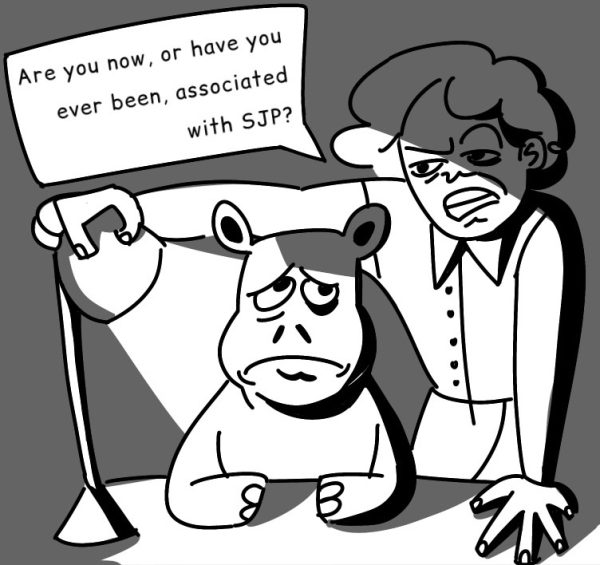Students’ allegations that officials charged pro-Palestinian student groups with misconduct mean that GW’s “challenging times” are far from over.
Students’ claims are twofold: They say the Office of Student Rights and Responsibilities accused Students for Justice in Palestine of violating its suspension by attending the Student Coalition for Justice in Palestine’s events; they also say officials have charged the coalition with violating University policies.
The effects of these alleged accusations won’t be confined to the parties involved. While officials attempt to move GW past the tumult of last semester, the disciplinary actions they take are only leading to more demonstrations. Or as one student said, “the accusations and the attempt to silence us will only make us louder.”
Whatever their intentions, it’s as if officials are trying to extinguish the flames of campus unrest by pouring gasoline onto the fire. Pro-Palestinian students aren’t interested in discussing free speech with officials one day and being disciplined the next. They believe GW is repressing them and contributing to a conflict that has killed more than 28,000 people in the Gaza Strip through its alleged ties to defense companies.
The University doesn’t have to answer students’ demands, but it behooves officials to prove they are not modern McCarthys persecuting students for the sake of their beliefs. Is any affiliation with SJP — from active membership to demonstrating against its suspension to simply aligning with its messaging — grounds for disciplinary action?

Even if discussing specific SRR cases require a degree of confidentiality, that shouldn’t stop officials from answering these questions. Are SJP’s members barred from participating in other student organizations? If SJP’s members are involved with another organization, especially one consisting of several independent student groups, who is else subject to disciplinary action? (For its part, SJP has said it’s not part of the coalition.)
Vigils, sit-ins and protests each pose some sort of disruption to the normal order of GW. But what crosses the line into “community disturbance” or “disorderly conduct?” And when officials restrict students from using campus facilities, where are they meant to go?
The answers to these questions are the difference between when, where and how a student can speak their mind or whether they’re allowed to speak at all. So it’s unfortunate that the University has so far remained mum on what, if any, charges these organizations face.
When students describe officials’ actions as “fascism,” it’s time to clear the air. Seeing is believing, and in the absence of any communication, it’s impossible to challenge pro-Palestinian students’ perception that GW is fundamentally opposed to their beliefs and their ability to express them.
Officials can and should enforce the Code of Student Conduct: Students’ actions have consequences, after all. But it should be clear that protests only lead to more punishments and more punishments only lead to more protests — the exact opposite of the semblance of normalcy officials seem desperate to restore.
A witch hunt, real or imagined, cannot bring GW together. It will only tear the University apart.
The editorial board consists of Hatchet staff members and operates separately from the newsroom. This week’s staff editorial was written by Opinions Editor Ethan Benn based on discussions with Contributing Culture Editor Jenna Baer, Editorials Assistant Paige Baratta, Contributing Social Media Director Anaya Bhatt, Contributing Opinions Editor Riley Goodfellow and Social Media Director Ethan Valliath.

